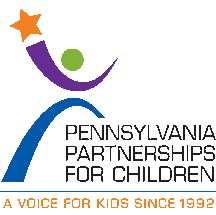- NRHA Announces 2025 Rural Health Fellows
- New RSV Drug Delivers Promising Results in Alaska's Yukon-Kuskokwim Delta
- Lack of Civic Infrastructure Drives Rural Health Disparities
- VA: Solicitation of Nomination for Appointment to the Veterans' Rural Health Advisory Committee
- EOP: National Rural Health Day, 2024
- Distance, Workforce Shortages Complicate Mental Health Access in Rural Nevada Communities
- Bird Flu Is Racing Through Farms, but Northwest States Are Rarely Testing Workers
- After Helene, Clinician Teams Brought Critical Care To Isolated WNC Communities
- Biden-Harris Administration Announces $52 Million Investment for Health Centers to Provide Care for People Reentering the Community after Incarceration
- The Biden-Harris Administration Supports Rural Health Care
- On National Rural Health Day, Reps. Sewell and Miller Introduce Bipartisan Legislation to Support Rural Hospitals
- HRSA: Inclusion of Terrain Factors in the Definition of Rural Area for Federal Office of Rural Health Policy Grants
- Terri Sewell Cosponsors Bill Reauthoring Program to Support Rural Hospitals
- DEA, HHS: Third Temporary Extension of COVID-19 Telemedicine Flexibilities for Prescription of Controlled Medications
- Celebrating National Rural Health Day
Pennsylvania Secretary of Health Highlights Benefits of Community Water Fluoridation During Visit to Shippensburg

Pennsylvania Physician General and Acting Secretary of Health Dr. Denise Johnson was in Shippensburg last week speaking to the safety and benefits of community water fluoridation. In the last few years, Shippensburg faced a fluoridation rollback threat that was overcome with the help of local oral health stakeholders. Dr. Johnson and the Pennsylvania Department of Health are encouraging water systems that do not currently fluoridate to consider initiating for the best interest of their customers. Executive Director Helen Hawkey and Public Health Dental Director Dr. Jonise McDaniel were in attendance.
In Victory for Older Foster Youth, HB 1866 Signed into Law

Pennsylvania Partnerships for Children’s (PPC) priority legislation HB 1866 passed in the last week of the legislative session and was signed into law by Gov. Wolf on November 3rd. Sponsored by Rep. Boback (R-Luzerne), the new law will improve permanency practices for transition age youth in the foster care system. The legislation was introduced in two consecutive legislative sessions, and we are grateful for Rep. Boback’s sponsorship in helping the bill reach the finish line.
Transition age youth are older youth in the foster care system (ages 14 to 21) transitioning to permanency with a caregiver or aging out of the system to adulthood. These young adults often struggle with this life transition. The new law will help foster youth find permanency by:
- Documenting family finding efforts for youth when they are no longer in the system.
- Expanding opportunities for permanency by increasing the age of the goal of Another Planned Permanent Living Arrangement (APPLA) from 16 to 18 years of age.
- Enhancing court accountability regarding suitable transition plans and overseeing services provided to aid in the transition to adulthood.
- Maintaining supportive adult connections to assist transition age youth with building a social safety net when paid professionals are no longer involved.
- Improving data collection to streamline child welfare data from all 67 counties at the state level.
PPC is proud to have helped shepherd HB 1866 through the General Assembly to be signed into law by Gov. Wolf. We will continue to work to improve Pennsylvania’s child welfare system so that foster youth have the opportunity to succeed in life.
Philadelphia Children’s Hospital’s PolicyLab Launches Interactive Platform on Rural Maternal and Child Health

During this year’s National Rural Health Week, PolicyLab will be debuting Our Rural Pennsylvania, an online interactive atlas created by mothers and caregivers to record the everyday places that influence their family’s health. Nearly three years in the making, Our Rural Pennsylvania is the public-facing output of a research project, ‘Understanding the Role of Place in Health and Well-being for families – a Photovoice Project by Moms’. The interdisciplinary project identifies rural-relevant policies and investments to improve maternal and child health in rural communities. Learn more about the project here.
Please join us virtually on November 17 at 5:30pm to celebrate the website launch, hear about the project, and learn about how to use the interactive resource as a resource to advocate for building healthy rural communities. Please RSVP here.
Low-Volume Emergency Departments are More Likely to Use Telehealth for Sepsis Care in a National Rural Telehealth Network
A Research & Policy Brief is available from the Rural Telehealth Research Center:
Sepsis is an expensive disease that is responsible for over 270,000 deaths in the U.S. annually. Early and aggressive treatment with antibiotics and hemodynamic resuscitation have been associated with improved outcomes, but many sepsis patients do not receive guideline-concordant care. Patients treated in low-volume emergency departments (EDs) have 38% higher mortality than those in high-volume EDs suggesting that volume is associated with elements of care that improve survival. Provider-to-provider ED-based telehealth (tele-ED) has been one strategy proposed to improve sepsis care in low-volume EDs. In tele-ED, local ED staff can request consultation with a remote physician and nurse who can connect using a 24-hour on-demand high-definition video connection allowing remote staff to see a patient, review records, provide advice, arrange for inter-hospital transfer, and provide clinical documentation. By connecting a clinician in a high-volume hospital with a care team in a low-volume hospital, rural sepsis patients and providers may benefit from high-volume experience and training even in a local rural facility.
The purpose of this study was to (1) report on the prevalence of tele-ED use for sepsis care across an established network, (2) quantify variation in use between hospitals, and (3) identify predictors of tele-ED consultation in tele-ED-capable hospitals.
USDA Seeks Applications to Support Regional Economic and Community Development Planning to Create Thriving Communities for Rural People

U.S. Department of Agriculture (USDA) Rural Development Under Secretary Xochitl Torres Small announced that USDA is seeking applications to implement regional economic and community development projects to create thriving communities for people in rural America.
The 2018 Farm Bill authorized USDA to make this funding available under the Strategic Economic and Community Development (SECD) initiative to support projects that will help rural people and economies prepare for the future. It can be used to implement projects that are included in multi-jurisdictional and multi-sectoral strategic community investment plans. To learn more, watch USDA’s SECD Initiative video.
HHS Finalizes Physician Payment Rule Strengthening Access to Behavioral Health Services and Whole-Person Care

The U.S. Department of Health and Human Services (HHS), through its Centers for Medicare & Medicaid Services (CMS), is expanding access to behavioral health care, cancer screening coverage, and dental care. The Calendar Year 2023 Physician Fee Schedule (PFS) final rule announced today also promotes innovation and coordinated care in the Medicare program through Accountable Care Organizations (ACOs). This rule directly supports President Biden’s Cancer Moonshot Goal to cut the death rate from cancer by at least 50% and also supports the Administration’s commitment of strengthening behavioral health, which the President outlined in his first State of the Union Address and the comprehensive strategy to tackle the nation’s mental health crisis, which HHS leaders have furthered through the National Tour to Strengthen Mental Health.
“The Biden-Harris Administration is committed to expanding access to vital prevention and treatment services,” said HHS Secretary Xavier Becerra. “Providing whole person support and services through Medicare will improve health and wellbeing for millions of Americans and even save lives.”
“Access to services promoting behavioral health, wellness, and whole-person care is key to helping people achieve the best health possible,” said CMS Administrator Chiquita Brooks-LaSure. “The Physician Fee Schedule final rule ensures that the people we serve will experience coordinated care and that they have access to prevention and treatment services for substance use, mental health services, crisis intervention, and pain care.”
“Together, we are building a stronger Medicare program,” said Deputy Administrator and Director for the Center for Medicare, Dr. Meena Seshamani. “No matter who you are, or what diagnoses you have, these changes will help ensure that Medicare treats the whole person— caring for physical health, behavioral health, and social needs that are integral to health— and ensuring access to the high-quality care all people deserve.”
Coverage for Behavioral Health Services and Opioid Use Disorder Treatment
In line with the 2022 CMS Behavioral Health Strategy, CMS is strengthening access to vital behavioral health services. CMS is making it easier for Medicare beneficiaries to get behavioral health services, by allowing behavioral health clinicians like licensed professional counselors and marriage and family therapists to offer services under general (rather than direct) supervision of the Medicare practitioner. Medicare will pay Opioid Treatment Programs that use telecommunications with patients to initiate treatment with buprenorphine. CMS is also clarifying that Opioid Treatment Programs can bill for opioid use disorder treatment services provided through mobile units, such as vans, in accordance with Substance Abuse and Mental Health Services Administration (SAMHSA) and Drug Enforcement Administration (DEA) guidance. These policies may increase access in rural and other underserved areas.
CMS is also finalizing policies to pay for clinical psychologists and licensed clinical social workers to furnish integrated behavioral health care as part of a primary care team. Finally, Medicare will provide a new monthly payment for comprehensive treatment and management services for patients with chronic pain. These new services offer a whole-person approach to care.
Expanding and Enhancing Accountable Care
CMS is finalizing changes to the Medicare Shared Savings Program, the nation’s largest Accountable Care Organization program, covering more than 11 million people with Medicare and including more than 500,000 health care providers. These policies represent some of the most significant reforms since the program was established in 2011, and the first Accountable Care Organizations (ACOs), which are groups of health care providers who come together to give coordinated, high-quality care to people with Medicare, began participating in 2012. Through these policies, which are central to the Medicare Value-Based Care Strategy, CMS will take important steps toward our 2030 goal of having 100% of Traditional Medicare beneficiaries in an accountable care relationship with their healthcare provider by 2030. CMS is finalizing proposals to incorporate advance shared savings payments to certain new ACOs that can be used to support their participation in the Shared Savings Program, including hiring additional staff or addressing social needs of people with Medicare. CMS is also finalizing a health equity adjustment to an ACO’s quality score, revising the benchmarking methodology, and allowing longer periods of time for ACOs to become accustomed to accountable care before being liable for downside risk, all of which are expected to increase participation in rural and underserved areas.
Reducing Barriers and Expanding Coverage for Colon Cancer Screening
Colon and rectal cancers continue to be a leading cause of death in the United States with even higher new cases and death rates for Black Americans, American Indians, and Alaska Natives. Medicare will now reduce the minimum age for colorectal cancer screening from 50 to 45 years, in alignment with recently revised policy recommendations by the U.S. Preventive Services Task Force. Additionally, Medicare will now cover as a preventive service a follow-on screening colonoscopy after a non-invasive stool-based test returns a positive result, which means that beneficiaries will not have out-of-pocket costs for both tests.
Finalizing Payment for Dental Services that are Integral to Covered Medical Services
CMS is codifying current policies in which Medicare Parts A and B pay for dental services when that service is integral to treating a beneficiary’s medical condition. Medicare will also pay for dental examinations and treatments in more circumstances, such as to eliminate infection preceding an organ transplant and certain cardiac procedures beginning in CY 2023 and prior to treatment for head and neck cancers beginning in CY 2024. Finally, CMS is establishing an annual process to review public input on other circumstances when payment for dental services may be allowed.
Payment Rates for CY 2023
The CY 2023 PFS conversion factor is $33.06, a decrease of $1.55 to the CY 2022 PFS conversion factor of $34.61. This conversion factor reflects the statutorily required update of 0% for CY 2023, expiration of the temporary 3% supplemental increase in PFS payments for CY 2022 provided by the Protecting Medicare and American Farmers From Sequester Cuts Act, and the statutorily required budget neutrality adjustment to account for changes in payment rates.
For a fact sheet on the CY 2023 Physician Fee Schedule Final Rule, please visit: https://www.cms.gov/newsroom/fact-sheets/calendar-year-cy-2023-medicare-physician-fee-schedule-final-rule
For a fact sheet on final changes to the CY 2023 Quality Payment Program, please visit: https://qpp-cm-prod-content.s3.amazonaws.com/uploads/2136/2023%20Quality%20Payment%20Program%20Final%20Rule%20Resources.zip
For a fact sheet on final changes to the Medicare Shared Savings Program, please visit: https://www.cms.gov/newsroom/fact-sheets/calendar-year-cy-2023-medicare-physician-fee-schedule-final-rule-medicare-shared-savings-program
For a CMS blog on behavioral health polices, please visit: https://www.cms.gov/blog/strengthening-behavioral-health-care-people-medicare-0?check_logged_in=1
To view the CY 2023 Physician Fee Schedule and Quality Payment Program final rule, please visit: https://www.cms.gov/files/document/cy2023-physician-fee-schedule-final-rule-cms-1770f.pdf
Importance of Maintaining and Monitoring Dental Waterlines
The Centers for Disease Control and Prevention (CDC) is issuing a Health Alert Network (HAN) Health Advisory to emphasize the importance of following existing recommendations for maintaining and monitoring dental waterlines. Multiple outbreaks of nontuberculous Mycobacteria (NTM) infections have occurred in children who received pulpotomies in pediatric dental clinics where the dental treatment water contained high levels of bacteria. CDC provides guidelines on infection control in dental settings, which contain recommendations to treat dental unit waterlines and monitor water quality. Dental providers should be familiar with these recommendations on how to properly maintain and monitor their dental equipment to ensure that dental treatment water is safe for patient care.
DOL Announces Nursing Expansion Funding Opportunity
The U.S. Department of Labor (DOL) is soliciting applications for the $80 million DOL Nursing Expansion Grant Program. Community Health Centers are among the organizations eligible to apply. This Funding Opportunity Announcement (FOA) will address bottlenecks in training the United States nursing workforce and expand and diversify the pipeline of qualified nursing professionals through two training tracks. The first track (Nurse Education Professional Track) will increase the number of clinical and vocational nursing instructors and educators by training new or upskilling experienced current or former nurses (including retired nurses) into advanced postsecondary credentialing necessary for nurses to become clinical and vocational nursing instructors and educators. The second track (Nursing Career Pathway Track) will train frontline healthcare professionals and paraprofessionals, including direct care workers, to advance along a career pathway and attain postsecondary credentials needed for middle- to high-skilled nursing occupations during the grant period of performance. Read the FOA.
Pennsylvania State Loan Repayment Program Opens for Applications
The Pennsylvania Primary Care Loan Repayment Program is now open for applications with a deadline of Dec. 14, 2022. Apply for loan repayment. Full-time and half-time two-year contracts are eligible. Physicians, dentists, and psychologists are eligible for up to $80,000 full-time and $40,000 half-time. Other practitioners are eligible for up to $48,000 full-time and up to $24,000 half-time. Eligible participants include MDs and DOs in Family Medicine, General Internal Medicine, General Pediatrics, Geriatrics, Obstetrics/Gynecology, and Psychiatry; CRNPs in Adult, Family, Pediatrics, Geriatrics, Women’s Health, Mental Health/Psychiatry); General Dentists; Registered Dental Hygienists; Public Health Dental Hygiene Practitioners; Certified Nurse Midwives; Physician Assistants (Adult, Family, Pediatrics, Geriatrics, Women’s Health, Mental Health/Psychiatry); Licensed Clinical Social Workers; Licensed Professional Counselors; Marriage and Family Therapists; and Psychologists.
CVS, Walgreens and Walmart Reach Tentative $12 Billion Opioid Settlement Deal
Three major retailers – CVS, Walgreens and Walmart – have tentatively agreed to pay at least $12 billion to settle a number of lawsuits brought by states and local governments alleging the retailers mishandled prescriptions of opioid painkillers, according to reports from Bloomberg and Reuters. Read more.


